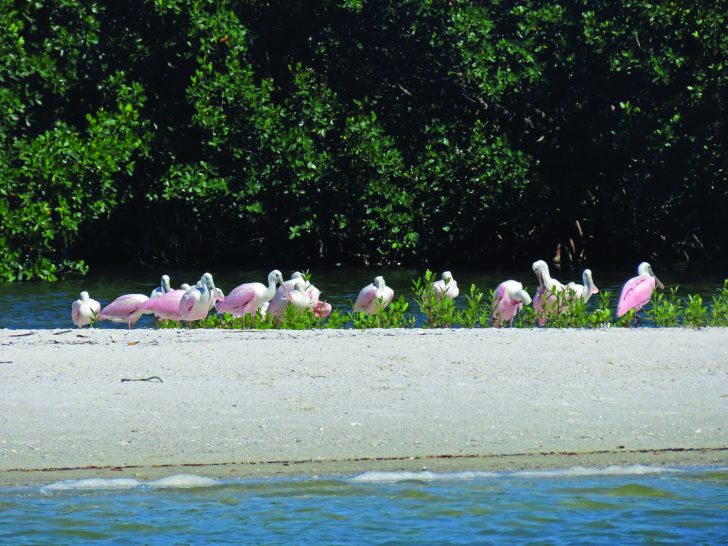
Roseate Spoonbills are among the most stunning and recognizable birds along Florida’s shores—their bright pink plumage with deep pink wing accents, orange tail feathers, and spoon-shaped bill make them easy to identify. Unfortunately, the spoonbill’s feathers were highly prized by plume hunters and the species nearly disappeared from Florida by 1900.
These iconic birds live in freshwater and saltwater wetlands from Florida to Texas and through much of South America. Thanks to efforts by Audubon, spoonbill numbers have rebounded significantly since the plume trade was outlawed at the turn of the 20th century, but today loss of habitat risks their future. Historically, their primary Florida nesting sites were in Florida Bay, but changing environmental conditions in recent decades, particularly increased salinity and water levels, are causing many of them to find new locations for breeding.
Spoonbills feed by sifting through the muddy substrate in shallow water, seeking out small fish, crustaceans, and aquatic insects. During breeding season, Roseate Spoonbills need water depths below 13 cm in order to catch their fish prey efficiently—this concentration of food is critical as they feed their voracious chicks. Additionally, when their habitat becomes too salty due to reduced freshwater flows or saltwater intrusion, the fish community changes to include more nonnative species like cichlids. Cichlids eat many of the smaller native fish and grow too large to fit in young spoonbills’ mouths.
Audubon’s Everglades Science Center has studied Roseate Spoonbills since 1939. Today, scientists use cutting-edge technology to provide a bird’s-eye view of spoonbill movements and nesting across the Sunshine State. New tools include trail cameras with motion sensors placed on nests to collect data while minimizing disturbance to the birds, and the use of cellular tracking devices to better understand the effects of a changing climate, sea-level rise, and Everglades restoration on these charismatic Florida birds.
Audubon data and analyses guide common-sense restoration and water management decisions to improve habitat for spoonbills, fish, and other wildlife. Look for Roseate Spoonbills during your fishing adventures!
